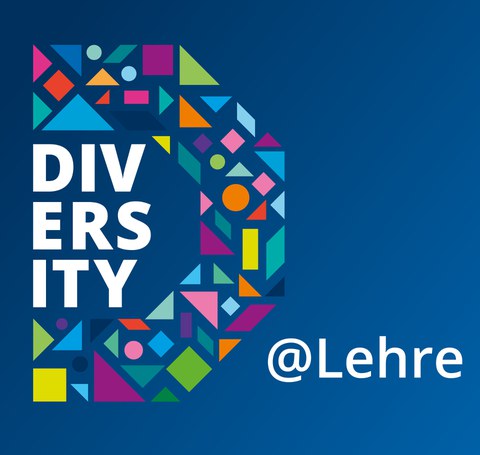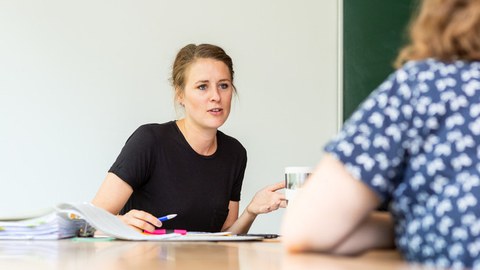Diversity in Teaching
Table of contents
Welcome to the Diversity@Teachingwebsite.
These pages aim to provide comprehensive support for lecturers in making their teaching at TU Dresden more diversity-friendly. In addition to the self-assessment test Diversity in University Teaching and the self-study course: Inclusive University Teaching, you will find lots of other useful information and links on the subject of diversity-friendly teaching.
Self-study courses
Self-assessment test: Diversity in university teaching
The self-assessment test is designed to help you assess your diversity competence in teaching. It is designed to help you reflect on your teaching practice with regard to diversity aspects and encourage you to continue working on it. The test is divided into two parts. In the first part, you will be familiarized with various topics in the area of diversity and can make an assessment of your knowledge in this regard. The second part focuses on the diversity-sensitive learning setting. On the one hand, you can test your knowledge and, on the other hand, you will receive numerous tips on how to design diversity-sensitive teaching. to the self-assessment test on the Opal learning platform
Self-study course: Inclusive university teaching
The self-study course teaches the basics of inclusive university teaching in an understandable and practical way. Inclusive university teaching does not refer to specialized niche knowledge that is reserved for only a few experts. Just a few changes in teaching practices enable participation for all students as a matter of course and support them in developing their full potential.
After participating in this self-study course, you will be familiar with the importance of inclusion for university teaching and you will have learned strategies to break down fundamental barriers in teaching. to the self-study course on the Opal learning platform
The self-study course can be recognized as part of the Saxon University Didactics Certificate plus in the area of "ACTIVE Teaching" to the extent of 10 work units. Recognition in Module 2 of the Saxon University Didactics Certificate for the areas of activity "Diversity, Equal Opportunities & International Affairs" (VCI) is currently being clarified.
ChanGe self-study program
Universities are often regarded as places of science and equality, but they have pronounced hierarchies and personal dependencies that can encourage discriminatory behavior and make it difficult to debate this. The self-study program "ChanGe - Chancengerechte Hochschule" helps teachers to meet these challenges.
Knowledge about diversity and equal opportunities is taught in two learning modules. In addition, participants reflect on their own role as a teacher and learn how to make teaching more inclusive. The course is completely asynchronous and can be completed flexibly - ideal for integration into everyday life.
Register now for the self-study course
Further information
If you would like to take a closer look at the aspects of diversity-friendly teaching, you will find further information on the topics of diversity competence, communication & interaction and practical tips below.
Diversity competence
On the following page you will find information on the topic of diversity competence. Starting with an introduction to diversity studies, it then goes on to explain how the topic of diversity can be positioned within your own field of research. It also explains how you can approach the topic of diversity through self-reflection.
To the Diversity Competence website
Diversity-sensitive communication and interaction
On this page you can find out how you can organize the exchange between you and your students as well as the exchange between students themselves.
To the website for the topic of communication and interaction
Practical tips
We have compiled various information and links for you on the topic of diversity-sensitive teaching. On the one hand, these relate to the possibilities for further engagement with the topic. You will also find advice services to which you can refer students if necessary.
To the website of the topic Practical tips
You will also find up-to-date information about your options for further education on the website of the Center for Continuing Education.(Offers in the area of diversity & anti-discrimination)
We hope that you have been able to find some helpful tips and information. If you have any further questions, comments or criticism, please do not hesitate to contact us.
Contact us
 © Crispin Iven Mokry
© Crispin Iven Mokry
Head of Diversity Management
NameDr. Sylvi Bianchin
Send encrypted email via the SecureMail portal (for TUD external users only).
Unit 9.3 Diversity Management
Unit 9.3 Diversity Management
Visiting address:
Verwaltungsgebäude 3, Room 201 Nöthnitzer Str. 43
01187 Dresden










